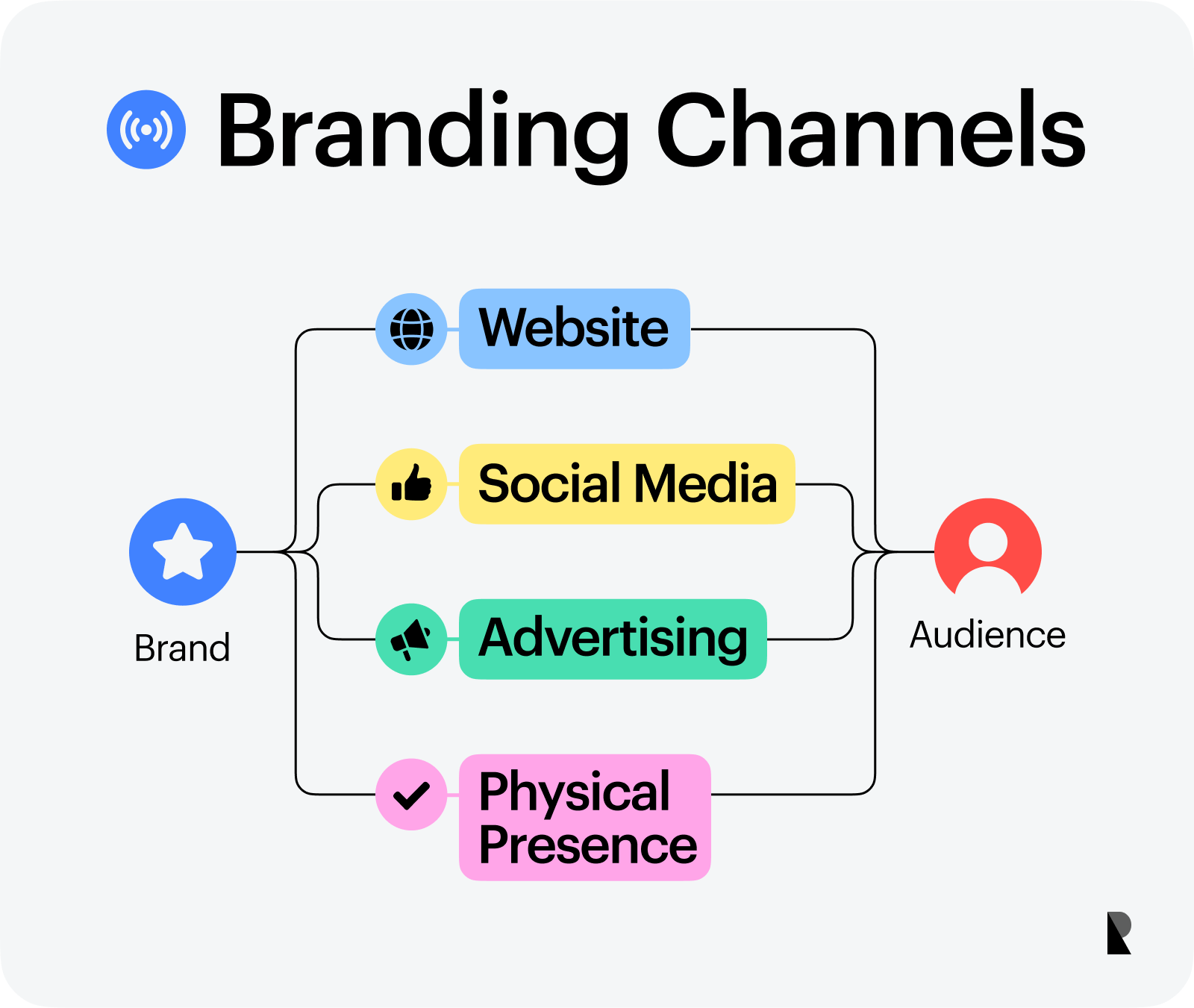The Significance of Robust Branding in Today's Competitive Market
Why Durable Branding Is Important for Market Leadership
In today's affordable landscape, robust branding emerges as an essential element for achieving market leadership. A distinct brand name identity not just establishes a firm in addition to its opponents however additionally grows trust and psychological connections with customers. These components are important for promoting loyalty and motivating repeat company, yet lots of companies ignore the deeper implications of their branding methods. As we check out the multifaceted nature of branding, it ends up being apparent that the stakes are high for those who fall short to acknowledge its importance fit lasting company success. What are the certain techniques that can boost a brand to this renowned condition?
Comprehending Brand Name Identification
Consistently recognizing the significance of brand identity is crucial for any company desiring attain market leadership. Brand identity encompasses the visual elements, messaging, and overall assumption that distinguish a business from its rivals. It works as a structure for how customers view and engage with a brand name, playing an important duty in shaping their experiences and assumptions.
A well-defined brand name identity interacts the core worths and mission of an organization, developing a psychological link with its target market. Elements such as logos, shade systems, typography, and intonation should line up cohesively to share a constant message across all platforms. This uniformity enhances brand name acknowledgment and fosters customer loyalty.
In addition, brand name identity is not simply shallow; it shows the credibility and honesty of a firm. It needs to be very carefully crafted to reverberate with the intended target market while continuing to be versatile to developing market patterns. Organizations that prioritize a strong brand identity can efficiently distinguish themselves, construct a favorable reputation, and cultivate a loyal customer base. Ultimately, a robust brand name identification is important for navigating affordable landscapes and maintaining lasting success.
Building Customer Depend On
A strong brand name identity lays the groundwork for building customer trust, a vital element in attaining market leadership. Trust is not just a psychological action; it is a strategic property that can dramatically affect acquiring choices and brand name loyalty. Companies that cultivate transparency, reliability, and consistency in their messaging and actions promote a complacency amongst consumers.
To build this depend on, brands should provide on their pledges. This implies ensuring that product quality satisfies customer expectations and that service experiences are responsive and positive. Regular communication reinforces reliability; when consumers know what to expect and that their worries will be attended to, their confidence in the brand grows.
Social proof also plays a crucial function in establishing count on. Favorable evaluations, reviews, and endorsements from reputable resources improve a brand's reputation and can guide potential consumers. Furthermore, engaging with customers with social systems and resolving their concerns openly demonstrates accountability and commitment.
Differentiation in Open Markets
In today's jampacked market, differentiation is essential for brands seeking to stand out and catch customer attention. With many alternatives offered, customers are typically overloaded, making it imperative for brands to develop an unique identification that reverberates with their target audience. This differentiation can show up with different elements, consisting of product attributes, prices techniques, customer care, and brand name messaging.
Efficient differentiation involves not just recognizing what makes a brand name distinct but likewise connecting these differences clearly discover this and consistently. Brand names must articulate their value recommendation in a means that addresses particular customer demands and choices. For example, a company might concentrate on sustainability, innovative technology, or individualized client experiences to carve out a niche in a competitive landscape.
Moreover, brands ought to continuously examine their affordable atmosphere to adjust and improve their distinction approaches. This positive approach makes certain that they remain appropriate and enticing to consumers as market dynamics progress. Ultimately, durable branding that highlights distinction not visit just fosters brand name commitment however also positions a business as a leader in its industry, leading the way for continual growth and market dominance.
Psychological Links With Consumers
Psychological connections offer as an effective stimulant in structure long-term connections between brands and consumers. When customers reverberate with a brand name on a psychological level, it cultivates loyalty that goes beyond simple transactional communications. Brands that efficiently stimulate feelings-- whether via storytelling, shared values, or genuine involvement-- develop a feeling of belonging for their consumers.
These emotional ties can considerably affect buying decisions, as customers are typically driven by sensations instead of reasoning. A brand name that aligns with customers' addresses or aspirations their discomfort points can grow a deep-rooted loyalty that brings about duplicate organization and favorable word-of-mouth references.
Additionally, psychological branding enables companies to distinguish themselves in jampacked markets. By using the sentiments of their target audience, brand names can take a special identification that resonates deeply, making them unforgettable and preferred over competitors.
In an age where consumers are bombarded with selections, a strong psychological link can be the determining variable in brand choice. Thus, focusing on psychological involvement is not just a marketing strategy; it is a calculated necessary for brand names seeking to develop meaningful relationships and enhance customer retention.
Long-Term Company Success
Sustainable company growth hinges on the capability to grow robust branding strategies that reverberate with consumers with time. A strong brand name not just differentiates a company from its rivals however likewise cultivates commitment and depend on amongst customers. This lasting connection is essential for making certain repeat service, which substantially adds to earnings stability and his response growth.
In a progressively competitive marketplace, brands that connect a constant and clear message are more probable to prosper. This uniformity reinforces brand name identity, making it much easier for customers to choose the brand and remember over others. Robust Branding. As an outcome, a reputable brand name can adapt to market adjustments without shedding its core essence, enabling development without alienating devoted customers
Additionally, robust branding develops a platform for customer involvement, whereby companies can collect feedback and adjust their offerings accordingly. This repetitive procedure not only boosts customer complete satisfaction but likewise develops a community around the brand, cultivating a feeling of belonging.
Conclusion

Organizations that prioritize a strong brand name identification can effectively distinguish themselves, build a positive reputation, and cultivate a dedicated client base.A strong brand identity lays the foundation for constructing customer trust fund, an essential part in achieving market leadership. A solid brand not only separates a business from its competitors but additionally fosters commitment and trust fund among customers. As a result, a well-established brand name can adapt to market adjustments without losing its core essence, permitting for technology without alienating faithful clients.
